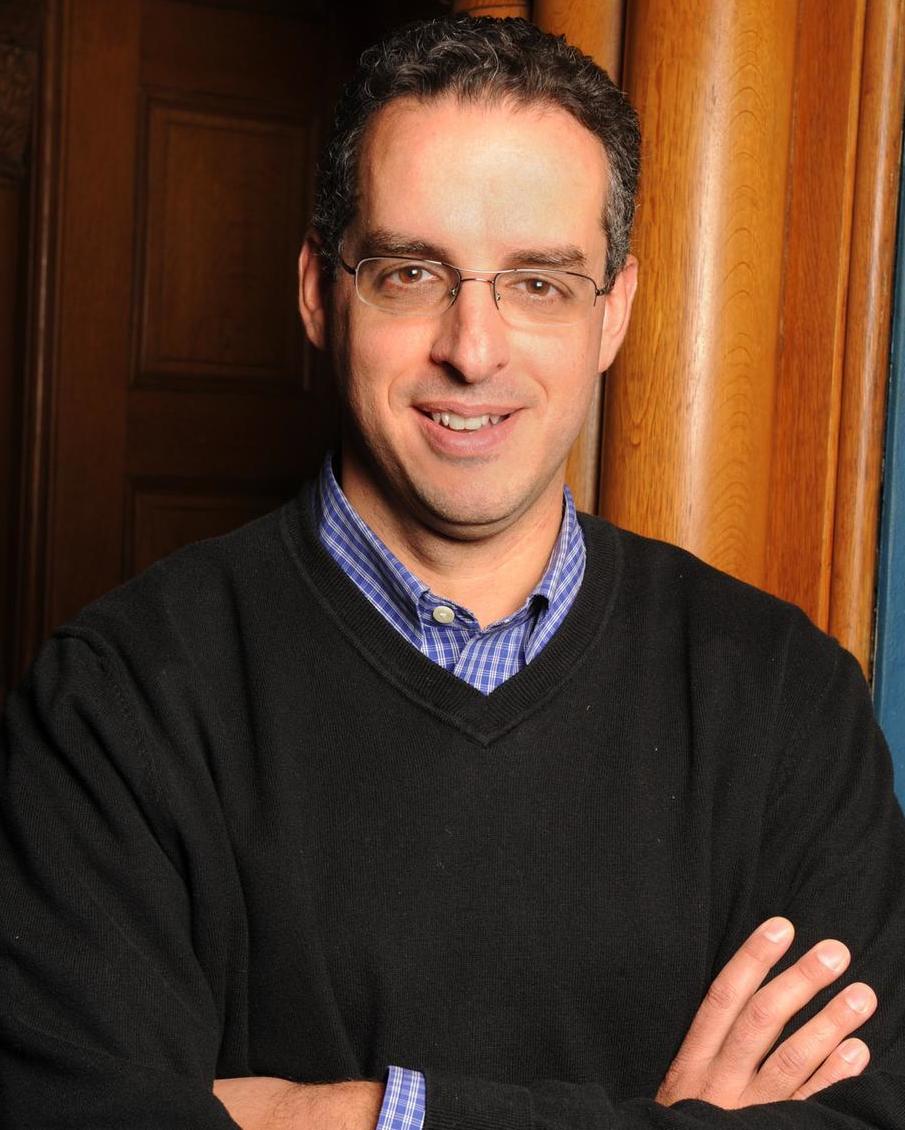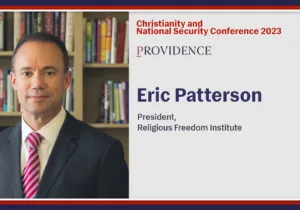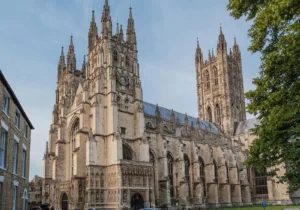The spread of the COVID-19 pandemic is having many unfortunate consequences: unexpected deaths, sudden unemployment, strains on healthcare systems around the globe, economic near-collapse, and, much less significantly, odd musings by theologians about the cultural significance of all of this. In a series of diary entries in First Things, Rusty Reno, for example, denounces Christian churches for adopting a “secular proposition” that prioritizes earthly life above all else. Christians, he says, have forsworn the graces of sacramental life in favor of “death’s dominion,” leading us to sacrifice “the social” out of our fear of death. As a conservative Christian critic of American liberalism, Reno has voiced these sorts of criticisms before, and reading this most recent jeremiad, one cannot help but wonder if perhaps it’s a tad overblown.
In Reno’s read, the fear of death and societal efforts to stop disease and protect the vulnerable are things previous generations knew better than to dwell on. Our action—our embrace of inactivity to avoid spreading disease—reveals to him that we believe “physical death is the greatest evil.” But plagues are as old as human history and have elicited fear and desperate action long before the advent of an allegedly decadent liberalism. Quarantine is not a twenty-first-century invention; societies have often stopped or altered daily activity in efforts to reduce disease transmission. To value life enough to fear death is neither novel nor evil. Christians have always recognized the fear of death as a natural emotion arising from love of life, which God created good. The Gospel itself promises victory over death. Christ died so that “whether we wake or sleep we might live with him” (1 Thess. 5:10); “the trumpet will sound and the dead will be raised” (1 Cor. 15:52); “death shall be no more, neither shall there be mourning, nor crying, nor pain anymore, for the former things have passed away” (Rev. 21:4). Because death is the last evil that Christ conquered, Christians understand fully the widespread aversion to death. The proposition that the value of life should be measured in economic terms, that we should be indifferent to the wellbeing of society’s most vulnerable members, strikes us as a “secular proposition.”
Reno’s analysis is more an exercise in cultural commentary than theological discernment. He believes social distancing and quarantining will atomize us, that collective social action to stop the spread of a pandemic has the power to destroy the inherent sociability of human nature. Yet Christians, together with most intellectual traditions, have always held that sociality is an essential, defining characteristic of the human. “Being social” is not something we choose to do, but what we are. Christians believe God created us to be in relationship and that our orientation toward the other reflects the image of God. If we are truly created as social creatures, then we can be sure that our social natures will not be destroyed by either the virus or counsel from the government or church to quarantine. Across the developed world, people ostensibly entitled and coddled by wealth, whom we are told liberal politics has made excessively individualistic, have embraced scarcity and joblessness on behalf of a common global good. We ought not discount these simple deeds, but instead recall the words of Albert Schweitzer:
Of all the will toward the ideal in mankind only a small part can manifest itself in public action. All the rest of this force must be content with small and obscure deeds. The sum of these, however, is a thousand times stronger than the acts of those who receive wide public recognition.
Out of My Life and Thought (Baltimore: John Hopkins Paperbacks, 1998), 90.
All over the world, ordinary people are willingly shouldering tremendous sacrifice in acts of solidarity; forgoing the pleasures, distractions, and affluent comforts of twenty-first-century life; exposing themselves to economic and existential hardship and risk, for the sake of their neighbors and fellow men. It is more than a little ironic that a conservative Christian critic of decadent consumerism and liberal individualism like Reno should grow alarmed at the speed with which all those self-absorbed autonomous selves abandoned the comforts of consumerism for the sake of their neighbors. The simple, unseen acts of heroism challenge the conservative critique of liberalism and its facile criticisms of “snowflakes,” “liberal consumerists,” and the like.
In the neighborhoods where we live, people have been sitting on their porches (whose prior use was as landing spots for Amazon packages) and waving to or conversing with neighbors who have taken to walking every evening on the streets. People have been arranging “socially distant” potlucks and email lists to help each other find food in short supply; donating money to out-of-work musicians streaming free concerts online; calling, texting, video conferencing with long lost friends, cousins, aunts, and uncles with whom they usually exchange no more than Christmas cards. Many families, like our own, have spent precious time together under the weird pressure of COVID-19, but temporarily suspended from the more pervasive and no less weird pressure of school work and economic activity. Our homes have become the locus of shared work, shared cooking, shared stories and arguments, much as homes used to be generations ago.
Rusty is right to say we are social beings who need and create social institutions. But what’s been revealed by this global pandemic is that our sociability and inter-relatedness is much more tenacious than cultural critics of liberalism have had eyes to see. Instead of bemoaning collective social action, the false prophets of doom should be rejoicing in these manifestations of our common humanity. Government lockdowns are not atomizing us; they may be bringing us together in new and important ways.
None of this is to deny that the lockdowns, the social distancing, the economic disruption, and all the havoc being wrought by the global pandemic represents a tremendous hardship and trial. Times of trial expose our weakness, folly, and mistakes, driving us into despair. Yet we believe the task for a theologian in a time such as this is to help people find God’s grace, help them discern his guiding hand amidst the stormy confusion, so that clinging to him in faith, they will find ways forward. “Have you not heard?” says the prophet, “the LORD is the everlasting God… He does not faint or grow weary… He gives power to the faint, and to him who has no might he increases strength” (Is 40:28-29).
To be sure, as in times of plague and war, in this plague, too, we are separated from our grandparents, parents, brothers, and sisters, our circles of friends, our social clubs, our communities of worship. Many even are cut off from loved ones who’ve succumbed to the disease. Such severe separation, viewed against the background of the biblical witness, might be interpreted as a sign of judgment, an event that exposes both our societal failing and individual sinfulness. And yet the purpose of God’s punishment is always to bring about renewal. Separated from those we love, we appreciate more deeply how important they are to us. Unable to meet with our friends on a whim, we recognize the importance of tending to and nurturing friendships by writing letters and emails and meeting electronically. Separated from our communal sacramental celebrations of God’s defeat over death, we learn to hunger more deeply for the communion by which God has saved the world. Every trial can become an opportunity to hear God’s voice more clearly and grow more fully in his grace, and so, too, can it be with this one.
That was the message streamed online before an empty church by Bishop Tamás Fabiny of Hungary in a service that could be watched all over the world but which was being broadcast only because of the COVID-19 pandemic. In the words of Bishop Fabiny:
Now, in a time of trial, we come to recognize how much strength is hidden in the community of faith… I am convinced that even today God gives us the gift of grace. In this current situation we can find comfort in telephone calls, a common prayer, an electronic letter. We need especially to attend to those who are alone, the elderly, and the sick. If in this way we can establish small communities, then we will learn to long for that community which God brings together from all his scattered people.
Similarly, countless millions of Catholics and non-Catholics recently watched Pope Francis’ “urbi et orbi” address, at which he stated the current trial “shows us how we have allowed to become dull and feeble the very things that nourish, sustain, and strengthen our lives and communities.” God is presenting us with a moment to employ “prayer and quiet service” as “our victorious weapons.” Has there ever been a papal address, an address of any Christian, more to the world even while the square of the city was empty? Is not this confident message of God’s grace what we need to overcome the COVID-19 pandemic and upon which to build durable communities and lives?
Indeed, it is only with the confidence of God’s grace that we can avoid despair at the canceling of worship services. Temporary suspension of church services does not entail the surrender of the church to the dominion of death. That desperate view rests on a profound theological error. Christians do not go to church, the way perhaps people go to the theater; they are the church, bound together in the body of Christ even when they are separated. And one way to appreciate the reality of Christ’s body can be through Eucharistic fasting. Unable to partake physically of Christ’s body and blood, we should seek to participate in his body spiritually, by turning to him in prayer and hymns. The confessor bishop Lajos Ordass, who spent years in prison due to communist persecution, testified that he could feel the prayers of those who lifted him up before God. Their prayers, he said, brought him closer to God. So, also, Christians separated today, not by persecution but the vicissitudes of nature, can be bound together by binding themselves closer to Christ.
A theologian’s task in time of plague is to show the light and give people hope. In recent years, many of us trained as theologians have traded our office for that of the pundit and scold. That we have so little worthwhile to say now, in this unprecedented time of fear and uncertainty, is yet one more sign of judgment. Rather than pontificating and prophesying, perhaps we should look to the courage and selflessness of the nameless millions of our peers whom we once denounced as materialists and individualistic consumers, be inspired by their gracious acceptance of suffering and trial, and return in humility to the simpler work of pointing away from ourselves to God. “Fear not, O land, be glad and rejoice, for the LORD has done great things” (Joel 2:21)!







 Sponsor a student for Christianity & National Security 2024
Sponsor a student for Christianity & National Security 2024